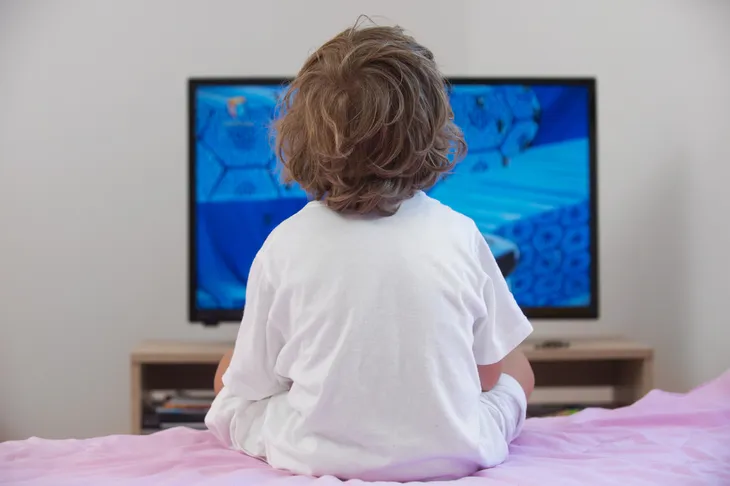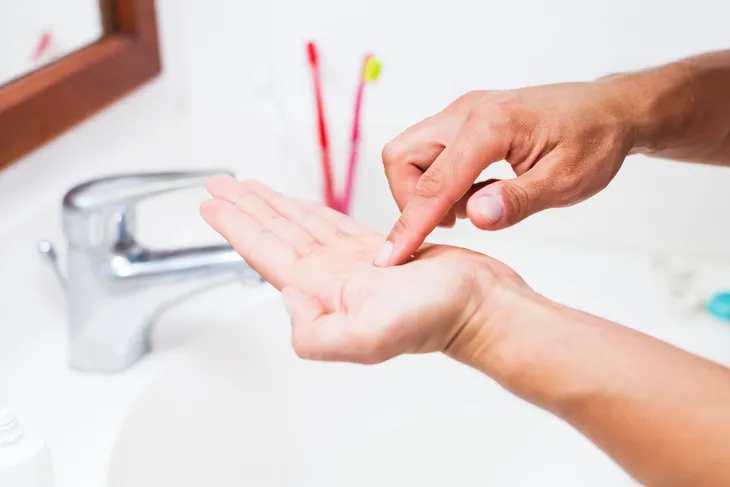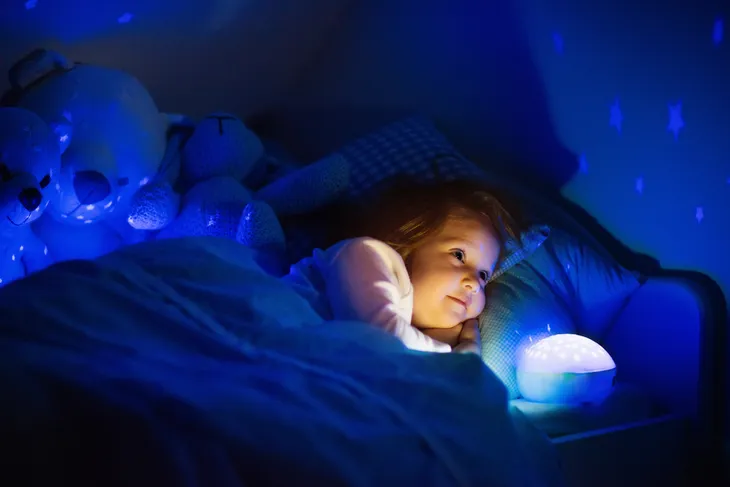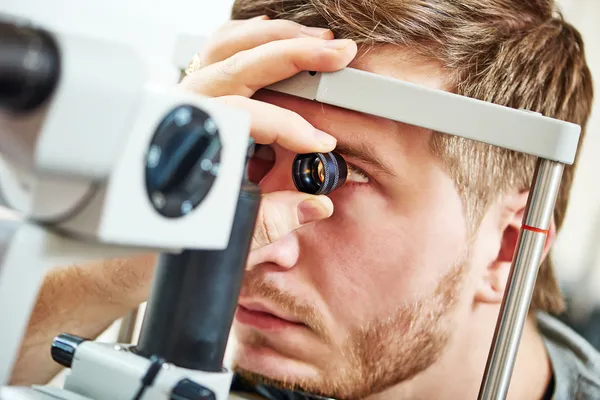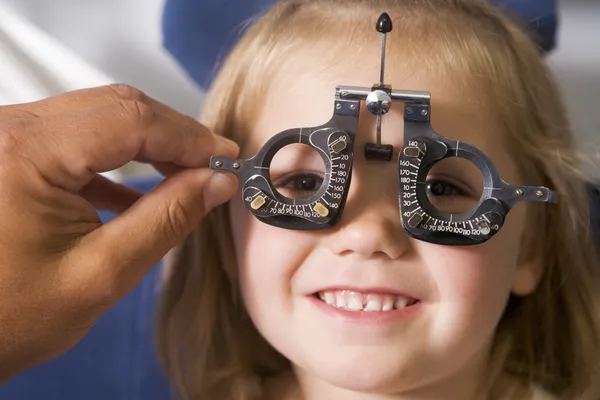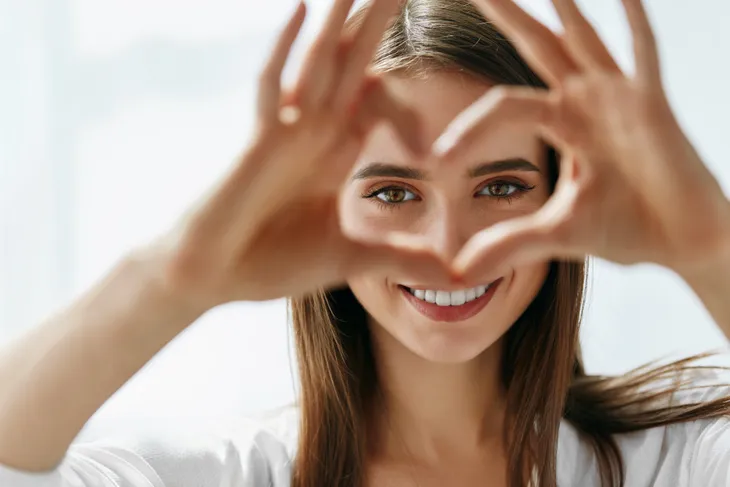Our eyes – we sometimes take them for granted, but they’re responsible for one of our most important senses. However, like any health topic, there are truths and not-so-truths floating around to consider.
For example, remember when your parents told you repeatedly that sitting too close to the television would ruin your eyes forever? Well, we need to have a closer look at that one among these 13 eye myths and facts.
1. Carrots are in Fact Good For Your Eyes
This is 1-of the ways your parents probably hounded you into eating your veggie sides, but it turns out they weren’t fibbing – well, at least not completely, confirms EveryDayHealth.com.
The source explains that carrots really are good for the peepers, but “they aren’t the only foods that boast vision superpowers.” The key is carotenoids (which were actually named as such because of first being identified in carrots), but these are also found in spinach, kale, peppers of all colors, and even egg yolk, it adds.
2. Brighten Your View About the Dark
If you routinely read books or magazines when the sun has gone down and the light is limited, you don’t have to fear about your eyes growing dim, says the New York Times. It says that while doing so can cause eyestrain and even a headache, “the notion that it can cause lasting damage is wrong.”
The biggest determining factor about weakening eyesight as you age is family history, adds the source. So go ahead, read that romance novel well into the wee hours, even if you only have a flashlight handy (we’re not judging).
3. Step Back From the Television Myth
Much like reading in the dark, staring at a screen – television or computer – for too long can cause eyestrain. However, proximity of kids to televisions is not a cause for concern about permanent eye damage, according to KidsHealth.org.
The source goes as far as to point out that “kids can actually focus up close without eyestrain better than adults, so they often develop the habit of sitting right in front of the television.” That being said, sitting close to TVs or holding books close to the face may be a sign of nearsightedness (requiring glasses) in kids, it adds.
4. Definitely Don’t Stare Into the Sun
Those scientists that warn us to not look directly into a solar eclipse also want you to know that staring directly into the sun on any given day is not a good plan – unless your plan is to damage your eyesight.
Healthline.com says most of us “instinctively blink and look away to avoid discomfort” when looking directly at the big, burning orb in the sky. However, it also notes that looking directly at the sun – “for even just a few seconds” – can cause serious eye damage due to UV light resulting in the formation of damaging free radicals when it reaches the retina.
5. Corrective Lenses Won’t Damage Your Eyes
There’s a school of thought out there that says wearing glasses will itself result in worsened vision, which just isn’t true. Sure, your eyes may still become weaker over time if you wear glasses, but don’t blame that on corrective lenses – blame it on aging or disease, says WebMD.
So if you notice that objects are not quite as sharp as they used to be, don’t hesitate to go to an eye doctor to determine whether you need glasses or contacts. It’s much better than the alternative, especially if you’re driving a vehicle.
6. Sleep Tight About Nightlights
Many kids (and maybe a few adults) enjoy the comfort of having a nightlight to help them rest through the night without being in complete darkness. However, WebMD explains that while some parents worry a nightlight will cause their child to become nearsighted (not able to see far away objects clearly), there’s a lack of vision with this belief.
The source says if anything, the use of a nightlight can help a child’s visual acuity. “Keeping a nightlight on in your baby’s room may actually help him or her learn to focus and develop important eye coordination skills when they are awake,” it explains.
7. Cross Out the Crossed Eyes Myth
This might’ve been another trick your parents used to stop you from goofing around with facial expressions, and you may be using it to stop your own kids from crossing their eyes as well. However, contrary to their wisdom, crossing your eyes won’t make them stay that way, at least according to 2020OnSite.com.
The source cites the Mayo Clinic to back up its claim, noting, “Our eye muscles are meant to allow us to move our eyes in many different directions.” That means moving them in a particular direction will not damage them or somehow make them stay in the wrong position. If your child is experiencing involuntary crossed eyes, then there’s a problem and you should have them see an eye doctor.
8. Squinting Will Not Narrow Your Vision
EveryDayHealth.com says this is another myth, and that the biggest concern about being a frequent squinter is probably developing wrinkles around the eyes rather than vision loss.
While squinting itself won’t hurt your vision, it may indicate a problem that’s already there – especially when it comes to kids. For example, “Children with double vision may squint to help them see,” it offers. It can also mean you need to update the prescription for your glasses, or that your eyes are too sensitive to light due to inflammation, adds the source.
9. Artificial Sugars Aren’t Sweet to Your Eyes
This perhaps something you may have not considered, but WebMD says its true – and it’s that artificial sweeteners can make your eyes more sensitive to light. So if you find yourself being blinded without sunglasses on a sunny day, then you might want to consider what you’re putting in your coffee or tea.
However, artificial sweeteners (such as cyclamates) aren’t the only things that can make your eyes respond less favorably to bright conditions. The source explains antibiotics, oral contraceptives, as well as medications for high blood pressure and diabetes can also have a similar effect.
10. Your Eyes are Passed Down From Your Parents
This is 1-unfortunate truth about eyesight that doesn’t consider other factors – if your family has a history of eye problems, you’re at higher risk for developing problems too, says the Cleveland Clinic.
“Genetic factors play a role in many kinds of eye disease, including those diseases that are the leading cause of blindness among infants, children and adults,” it notes. In fact, the source says more than 60-percent of cases of blindness among infants are from inherited diseases. For adults, glaucoma and macular degeneration “both appear to be inherited in a large portion of cases,” it adds.
11. If You Have Good Vision, Get an Eye Exam
Yes, you read that headline properly. Having 20/20 vision doesn’t mean you should skip appointments at the eye doctor until you do notice a problem, warns EveryDayHealth.com.
The source says routine eye exams are “essential,” as many eye diseases can creep into the spotlight before presenting any symptoms. Only a proper eye exam (every 2-years as a general rule) can spot the early signs of these types of problems, it adds. Early treatment can help you preserve your vision.
12. There’s No Minimum Age For an Eye Exam
Many parents may be under the belief that an eye exam will somehow be damaging to their infant or toddler, but ThinkAboutYourEyes.com addresses that topic.
“Eye exams for children are extremely important,” says the source, noting up to 10-percent of preschoolers has vision problems. It adds that the American Optometric Association recommends the first comprehensive eye exams at 6-months of age, followed by another at 3-years, and every 2-years when they reach school age.
13. Vision Problems are Not a Fact of Life
Some people avoid proper eye care because they figure, “well, there’s nothing I can do from preventing my eyes from going downhill.” Quite the contrary, actually, says EveryDayHealth.com.
It’s not just going for eye exams that’s important to maintaining eye health – it’s considering your overall health picture, and that includes not smoking, eating healthy, and controlling your blood pressure and diabetes, says the source. “By controlling all these things, you are protecting your vision now and in the future,” it notes.



